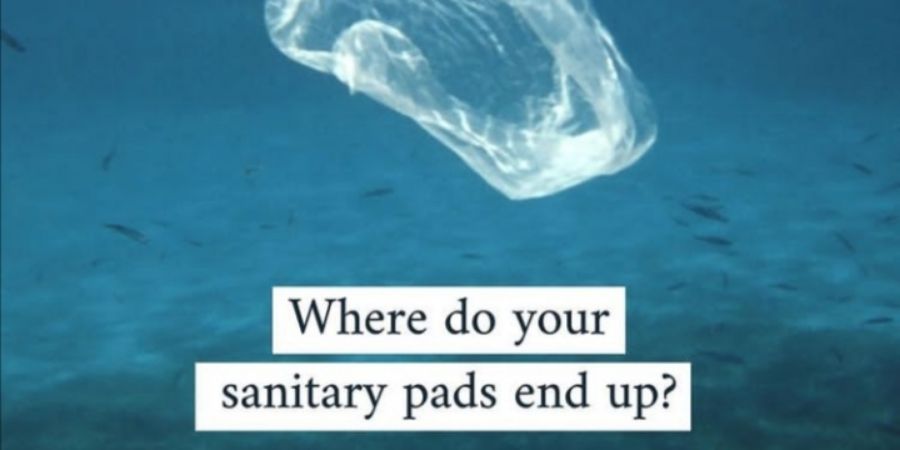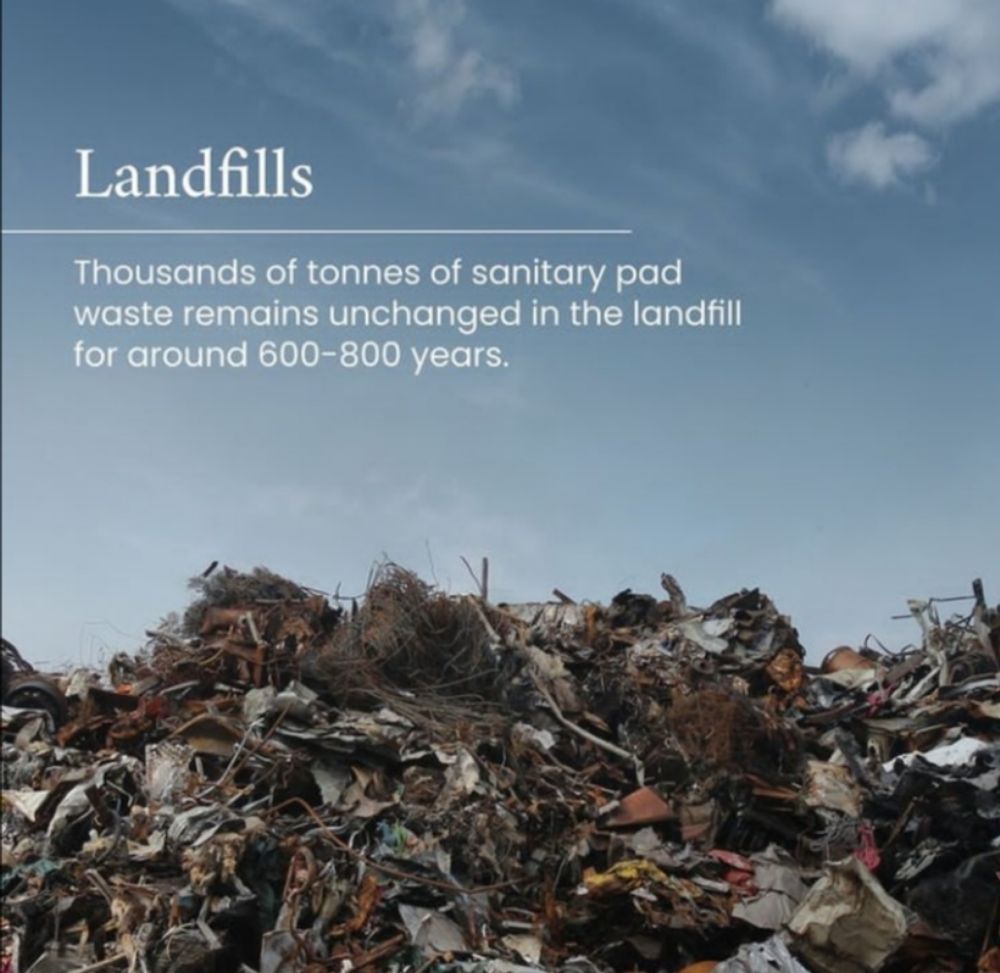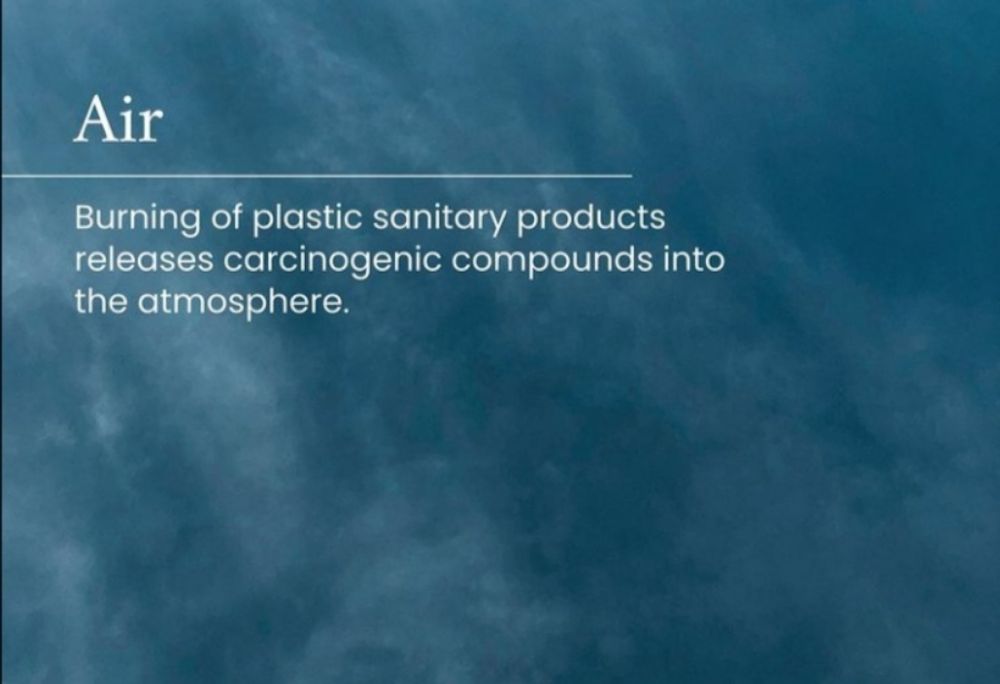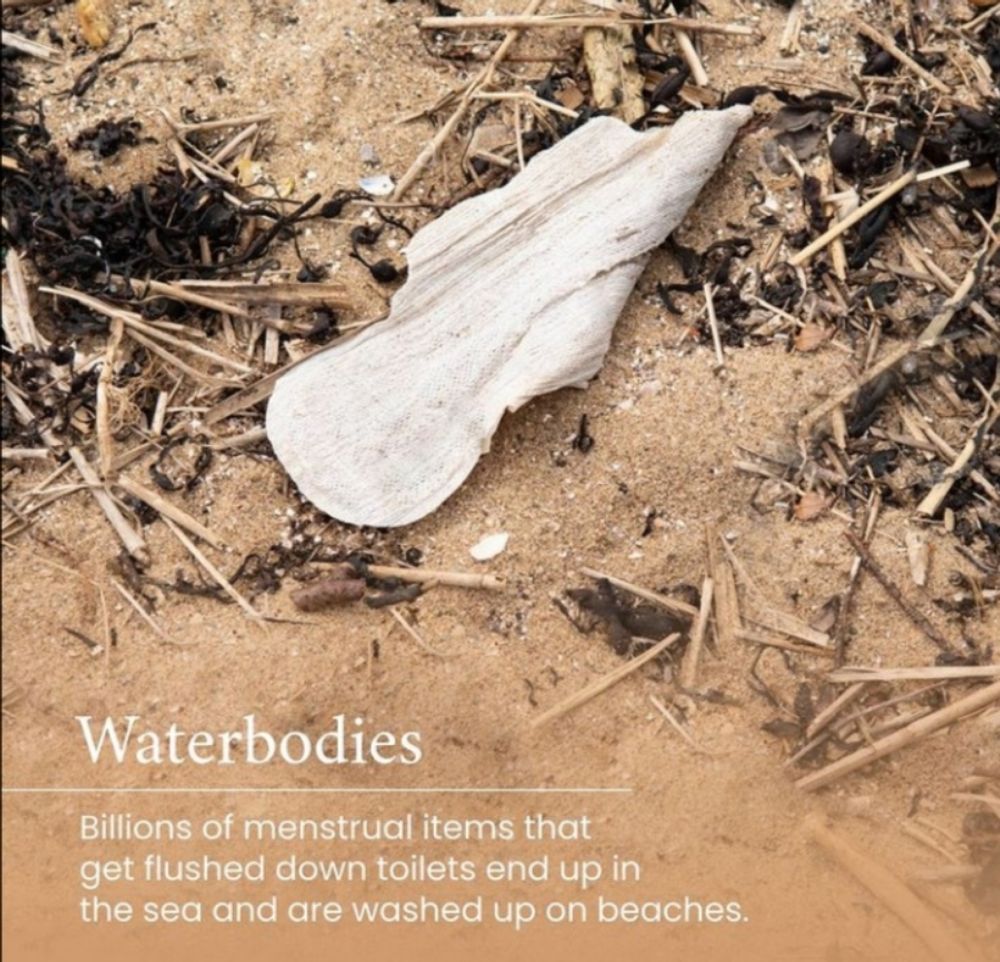

Sanitary waste disposal has become an increasing problem in all over the World, but in India, as the plastic used in disposable sanitary napkins is not biodegrable and leads to health and envionmental hazards. The lack of concern for Sanitary waste management in our country is reflected in the fact that there are no reliable statistics available on the subject. Disposiong of conventional Plastic pads in landfills is not ideal either as they remain unchanged for around 600-800 years after disposal. And further cause infertile soil and also may cause many disease to humans as well as animals.

In Air, the burning of Plastic sanitary products releases carcinogenic compounds into the atmosphere which cause difficulty in breathing and also can cause many respiration problems.

Into the Water bodies, billions of menstrual items that get flused down toilets end up in the sea this impact on the life below water and are washed up on beaches.

The Bio-medical Waste (Management & Handling )Rules, says that items contaminated with blood and body fluids, including cotton, used sanitary products are bio-medical waste and should be incinerated, autoclaved, or microwaved to destroy pathogens.
What happen when you handed the used napkins over to the garbage collector and later segregate often manually. Waste pickers separate soiled napkins from recyclable items by hand, exposing themselves to microorganisms like E-coil, salmonella, HIV and pathogens that cause hepatitis and tetanus.
And according to the Soild Waste Management(SWM) Rules, every waste genertor must segregate waste into three fractions - WET, DRY, and the Domestic hazardous waste.Every household needs to ensure that sanitary waste should be properly wrapped and the rule also says that “Sanitary waste should be kept in the dry waste bin and be handed over separately.”
As per demand of the time, we need to ensure that the manufactures or Product owner and authorities set up the waste management systems for Sanitary wasteage. Also, should need to ensure that they set up a collection system to take back the packing waste of their products, the most importantly create awareness on Proper disposal of such pads and also educate the people about it. Mostly in the rural areas, campaign on the topic “How to dispose sanitary waste correctly” can may help. And the alternatives of the Plastic sanitary products should be used which are eco-friendly, if possible have minimum cost.










